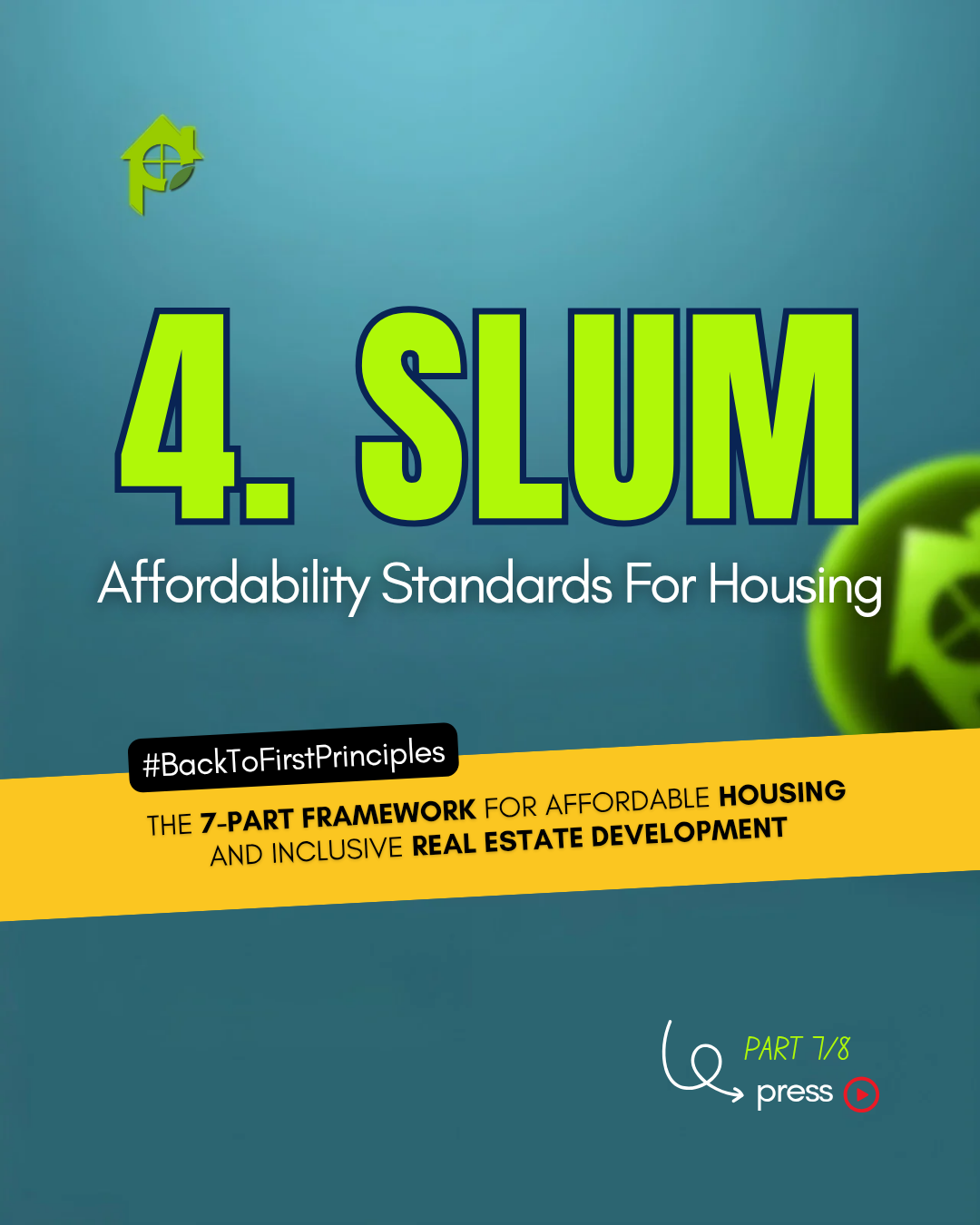
CONTACT US
Affordable Homeownership

SNEAK PEEK
Across Nigeria, the conversation about slums often revolves around eviction, relocation, and “upgrading.” But the truth is more complex. Informality, from unplanned settlements to informal trade, represents over 60% of the population and economy. It’s not an anomaly; it’s the reality most Nigerians live in.
And far from being a burden, this informal ecosystem quietly powers our cities. It builds, feeds, transports, and houses millions. So instead of asking how to “get rid” of slums, maybe we should ask:
“What are they showing us about the failures and possibilities of our housing system?”
Informal settlements reveal, more than any other metric, how responsive a government and its economy are to city growth. When slums expand rapidly, it’s not merely a population issue; it’s evidence that the formal market isn’t meeting real needs.
The informal sector fills the void left by formal systems. It becomes the default housing and labour market for millions excluded by rigid financial and policy frameworks. In short, the growth of slums is an urban feedback mechanism — a measure of how well our systems are working for the majority.
Where resources are scarce, innovation becomes a necessity. In slums, residents reimagine construction with salvaged materials, share spaces efficiently, and evolve local systems of trade and mutual support.
These grassroots innovations are not always random or mere acts of desperation; they are adaptive design responses that formal housing systems can learn from.
Slums are strategically located near business districts and transport nodes because proximity to work is a survival requirement. This highlights a key insight for housing reform: Affordable housing far from opportunity isn’t affordable at all.
Urban design must integrate affordability with access to jobs, education, and healthcare.
Informal builders construct according to available resources; one block, one room, one phase at a time. This “cut your coat according to your cloth” principle could inform incremental housing models, allowing families to build sustainably within their means rather than waiting for unreachable “complete homes.”
Collective power is the invisible infrastructure of informal settlements. Through shared labour, communal financing, and land-sharing arrangements, residents achieve outcomes far beyond what individuals could afford alone.
This principle of community-led development is central to creating scalable, affordable housing for urban Nigeria.
Rather than dismissing slums as blights, policymakers and investors should see them as living laboratories of resilience. They demonstrate how to design flexible, cost-effective, and community-centered systems that reflect the realities of our economy.
Informality, in this sense, is not failure; it’s feedback. It reveals that affordability, creativity, and cooperation are not optional values but the foundation of sustainable urban life.
To integrate the lessons of informality into formal housing systems, we need to:
These aren’t theoretical ideas; they are borrowed from the success strategies already visible within our informal cities.
Slums are not the failure of cities. They are evidence that people are still trying to make cities work for them. They are a response, not a rebellion. By learning from the systems that ordinary people have created under constraint, Nigeria can finally design housing and urban models that are truly inclusive, adaptive, and sustainable.
The informal city has always been ahead of policy. Maybe it’s time policy caught up.
01.

02.
Category
Discover insights into creating affordable homeownership with PetitHaus.
